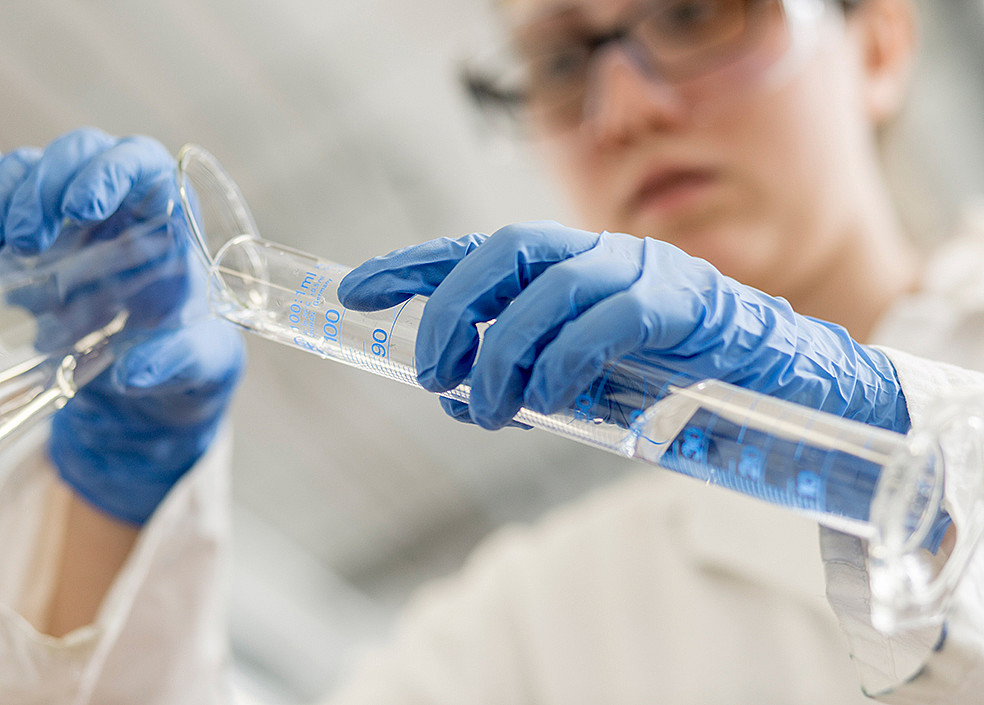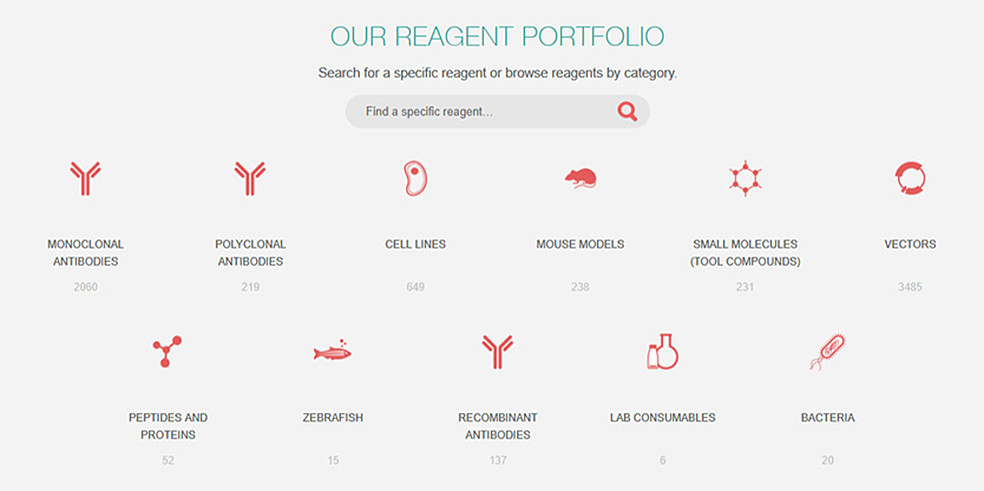Published on April 27, 2021
Introduced: Transfer of research reagents via Ximbio

Quite often, the scientists in the KIT laboratories develop substances, particles, and reagents that could be of interest to industry or other research groups. In laboratory experiments, the substances prove their full potential. However, the transfer to interested parties from science and industry often fails because the scientific institutes are not designed for production and have no infrastructure for the distribution of their reagents. This is where the online platform Ximbio offers a convenient solution.
Ximbio is a platform for searching, distributing or purchasing research reagents and exchanging information. In this way, the initiators want to make reagents for life science research more visible and easily accessible on a broad basis in order to boost life science research. A desirable side effect is the exchange within the life science community. The platform, which was established by Cancer Research UK, primarily serves the trading of research reagents in the fields of life science, medicine and health. The focus is on research reagents from the clinical, medical and biochemical fields, such as cell lines, vectors, mouse models, antibodies, cancer inhibitors, but also markers such as fluorescent dyes.selten entwickeln die Forscher/innen in den Laboren am KIT neue Substanzen, Partikel und Reagenzien, die für die Wirtschaft oder andere Forschungsgruppen von Interesse sein könnten. In Laborversuchen beweisen die Substanzen ihr volles Potenzial. Der Transfer an Interessierte aus Wissenschaft und Wirtschaft scheitert aber häufig daran, dass die wissenschaftlichen Institute nicht dafür ausgelegt sind, größere Mengen für weitere industrielle Tests herzustellen. Hier bietet die Online-Plattform Ximbio eine komfortable Lösung. Die Plattform, die von Cancer Research UK aufgebaut wurde, dient dem Handel mit Forschungsreagenzien aus den Bereichen Life Science, Medizin und Gesundheit. Erwünschter Nebeneffekt ist der Austausch in der Life-Science-Community. Beim Handel liegt der Fokus liegt auf Forschungsreagenzien aus dem klinischen, medizinischen und biochemischen Bereich, wie z.B. Zelllinien, Vektoren, Mausmodelle, Antikörper, Krebs-Inhibitoren aber auch Fluoreszenzfarbstoffe.

Ximbio is not only an online database for R&D reagents: Like in an online catalog, the listed reagents can be purchased by commercial companies as well as other research institutions. Potentially interested parties order the substances on offer directly online. However, the production of the reagents on demand is not the responsibility of the scientific suppliers of the reagents, but is carried out under the direction of Ximbio or on their behalf. In cooperation with industrial manufacturers, the ordered quantities are produced and delivered to the buyer. The cooperation in this business model is contractually regulated: Ximbio receives non-exclusive, sub-licensable rights of use and precise synthesis specifications for the offered reagents from the research institutions for the aforementioned R&D purpose. This enables Ximbio or the subcontracted producers to reproducibly manufacture the desired reagents.
With each sale of reagents, a profit share flows to the scientific supplier of the substance. These incomes can improve the third-party funding quota without causing permanent expenses for the researchers. In addition, sales via Ximbio can also have positive effects on reputation and technology commercialization. For example, a sale can result in requests for cooperation or licensing interest from a commercial enterprise, provided the corresponding intellectual property (IP) is available. Each reagent listing on the platform is linked to the vendor and its institution, making both more visible to a global audience. Dr. Iris Kräuter, license manager at Innovation and Relations Management at KIT, invites the scientific employees of KIT to participate: "Use this opportunity to draw attention to your research results, to network further, and to attract new partners." The cooperation between KIT and Ximbio is regulated by contract. With the existing basic contract you can initiate the cooperation with Ximbio in an easy and individual way for your institute – without any financial risk.
Well-known German research institutions, such as the Max Plank Society and the DKFZ, are already using Ximbio to distribute their reagents. Prof. Dr. Claus Feldmann from the Institute of Inorganic Chemistry at KIT is currently testing this distribution model: "At the moment, I have two reagents on the digital shelf at Ximbio, which are also protected by KIT patents. Even if we don't generate huge incomes with them, we are internationally visible this way. If we can help the research and development of other institutions with our substances, that's a good thing."

Do you also have useful, published research reagents at your institute that you would like to distribute for research and development? Does your substance fit into Ximbio's portfolio? Then use the service of the trading platform to make your developments available to others. Dr. Kräuter from the KIT Innovation and Relations Management will support you with the contractual preparations.

comments about this article
No comments